Profiles of 2019-2020 CRS Fellows
Keiko Beers
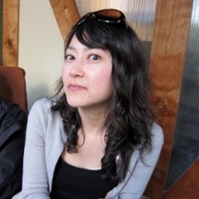 Keiko Beers is a PhD candidate in the Department of Linguistics. In her dissertation, Exploring Language Endangerment and Language Change in Tohono 'O’odham, Keiko investigates how the grammar of one specific endangered Native American language spoken in Arizona (US) and Sonora (Mexico) called Tohono O'odham has changed over approximately the last 100 years. During this timeframe, the Tohono O'odham on the US side of the border (and all other Native American communities) have been the target of specific coercive measures leading to the gradual replacement of their language with English. Within this context, Keiko explores how threatened languages change in ways that may differ from what is observed in vibrant languages. In order to carry out her study, Keiko compares archival records of O'odham oral narratives from the early 1900s with oral story collections from the Midcentury, as well as modern use of the language as captured on YouTube videos.
Keiko Beers is a PhD candidate in the Department of Linguistics. In her dissertation, Exploring Language Endangerment and Language Change in Tohono 'O’odham, Keiko investigates how the grammar of one specific endangered Native American language spoken in Arizona (US) and Sonora (Mexico) called Tohono O'odham has changed over approximately the last 100 years. During this timeframe, the Tohono O'odham on the US side of the border (and all other Native American communities) have been the target of specific coercive measures leading to the gradual replacement of their language with English. Within this context, Keiko explores how threatened languages change in ways that may differ from what is observed in vibrant languages. In order to carry out her study, Keiko compares archival records of O'odham oral narratives from the early 1900s with oral story collections from the Midcentury, as well as modern use of the language as captured on YouTube videos.
Katie Brewer
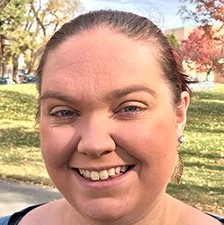 Katie Brewer is a PhD candidate in the Department of Anthropology at the University of New Mexico (UNM). She is a historical archaeologist who specializes in Spanish colonial archaeology, particularly indigenous responses and resistance to Spanish colonization. Her dissertation research focuses on analyzing changes in burial patterns in five pueblos in New Mexico and Arizona from pre-Contact to post-Contact to study conversion (or forced conversion) to Spanish Catholicism as a result of missionization by Franciscan priests in the 17th century. She currently works as a graduate assistant in the Department of Anthropology and as a museum technician for the Maxwell Museum of Anthropology and the collections for Chaco Culture National Historical Park. She received her B.S. in Anthropology and History from Portland State University and her M.A. in Anthropology/Historical Archaeology from the University of West Florida.
Katie Brewer is a PhD candidate in the Department of Anthropology at the University of New Mexico (UNM). She is a historical archaeologist who specializes in Spanish colonial archaeology, particularly indigenous responses and resistance to Spanish colonization. Her dissertation research focuses on analyzing changes in burial patterns in five pueblos in New Mexico and Arizona from pre-Contact to post-Contact to study conversion (or forced conversion) to Spanish Catholicism as a result of missionization by Franciscan priests in the 17th century. She currently works as a graduate assistant in the Department of Anthropology and as a museum technician for the Maxwell Museum of Anthropology and the collections for Chaco Culture National Historical Park. She received her B.S. in Anthropology and History from Portland State University and her M.A. in Anthropology/Historical Archaeology from the University of West Florida.
Felicity Fonseca
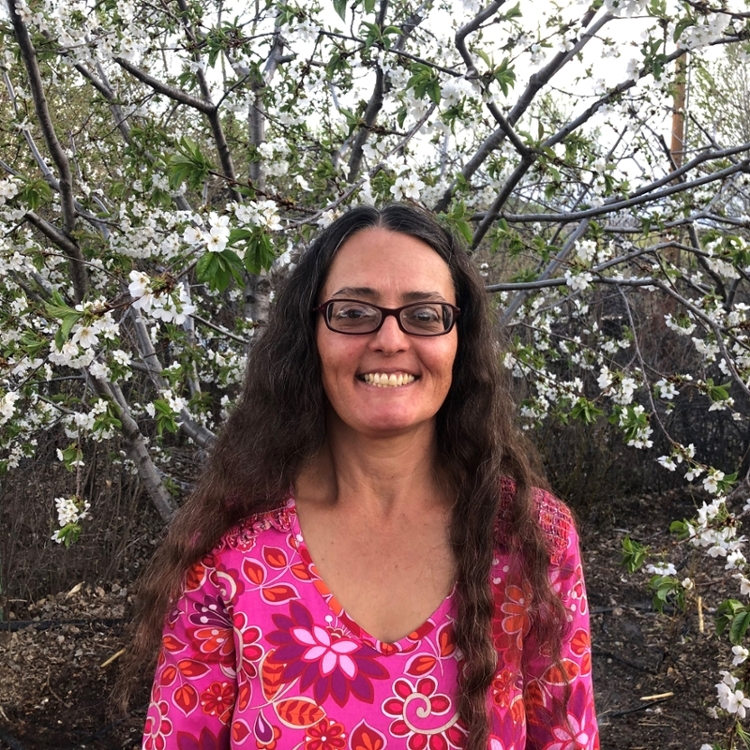 Felicity Fonseca is director of Embudo Valley Library, which received the 2015 National Medal for Museum and Library service in recognition of outstanding community service. She was a 2018-2019 fellow in the UNM Evaluation Lab. With support from the Center for Regional Studies, Felicity completed her thesis and Master’s in Public Administration at UNM in spring 2020. Felicity is passionate about creating a thriving and connected community in her home, Dixon, NM. Her thesis researched Placekeeping and Equitable Development in the Embudo Valley. She investigated how a public park and stage project on the grounds of Embudo Valley Library can contribute to revitalization, equity, and creating a cohesive community that retains its historic and cultural essence. Human centered design and equitable development strategies transform placemaking into placekeeping, elevating community history and identity. Felicity grows a big garden, is mother to Emma, 16, Ulysses, 12, and wife to Brian.
Felicity Fonseca is director of Embudo Valley Library, which received the 2015 National Medal for Museum and Library service in recognition of outstanding community service. She was a 2018-2019 fellow in the UNM Evaluation Lab. With support from the Center for Regional Studies, Felicity completed her thesis and Master’s in Public Administration at UNM in spring 2020. Felicity is passionate about creating a thriving and connected community in her home, Dixon, NM. Her thesis researched Placekeeping and Equitable Development in the Embudo Valley. She investigated how a public park and stage project on the grounds of Embudo Valley Library can contribute to revitalization, equity, and creating a cohesive community that retains its historic and cultural essence. Human centered design and equitable development strategies transform placemaking into placekeeping, elevating community history and identity. Felicity grows a big garden, is mother to Emma, 16, Ulysses, 12, and wife to Brian.
Tania García
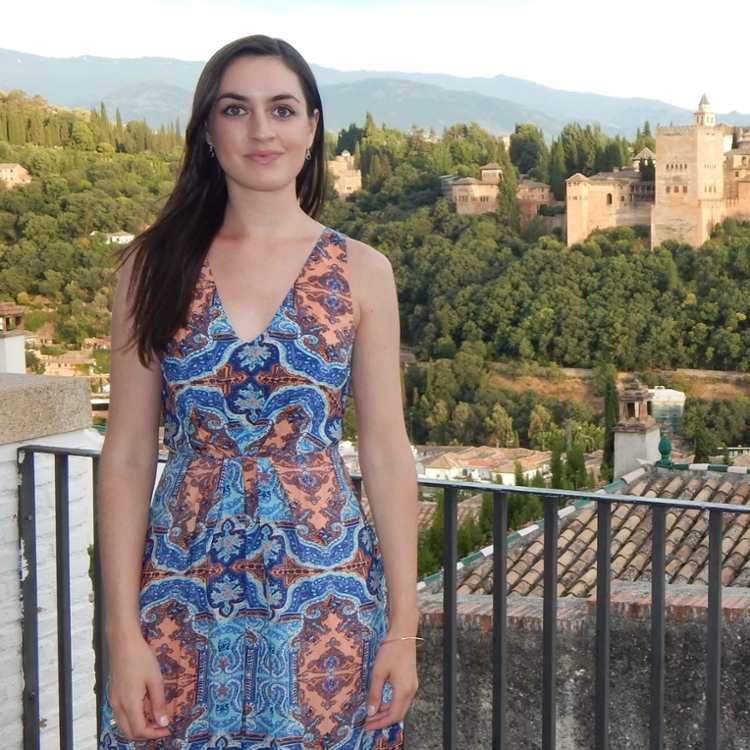 Tania García is a Doctor of Philosophy candidate in American Studies at the University of New Mexico currently researching literary and photographic hauntings along northern New Mexico and southern Colorado borderlands as a dimension of Southwest Studies. Along with teaching undergraduate courses in American Studies at UNM, such as Introduction to Southwest Studies and Introduction to Race, Class, and Ethnicity, Tania holds a doctoral dissertation research fellowship at UNM’s Center for Regional Studies. Areas of study continuing to interest Tania include Transnational American Studies, Critical Trauma Studies, Visual Culture, Popular Culture, World Cinema, Black Transnationalism, Jewish and African Diaspora Studies, Genocide Studies, Indigenous Hawaiian Literature, and Southwest Studies. While in American Studies at UNM, Tania has researched comparative and cross-cultural topics such as Spanish National Cinema in a transnational context, Chicano/a, Native American, Asian American, and Native Hawaiian artistic expression as active resistance to U.S. imperialism and colonialism.
Tania García is a Doctor of Philosophy candidate in American Studies at the University of New Mexico currently researching literary and photographic hauntings along northern New Mexico and southern Colorado borderlands as a dimension of Southwest Studies. Along with teaching undergraduate courses in American Studies at UNM, such as Introduction to Southwest Studies and Introduction to Race, Class, and Ethnicity, Tania holds a doctoral dissertation research fellowship at UNM’s Center for Regional Studies. Areas of study continuing to interest Tania include Transnational American Studies, Critical Trauma Studies, Visual Culture, Popular Culture, World Cinema, Black Transnationalism, Jewish and African Diaspora Studies, Genocide Studies, Indigenous Hawaiian Literature, and Southwest Studies. While in American Studies at UNM, Tania has researched comparative and cross-cultural topics such as Spanish National Cinema in a transnational context, Chicano/a, Native American, Asian American, and Native Hawaiian artistic expression as active resistance to U.S. imperialism and colonialism.
Bárbara Gómez-Aguiñaga
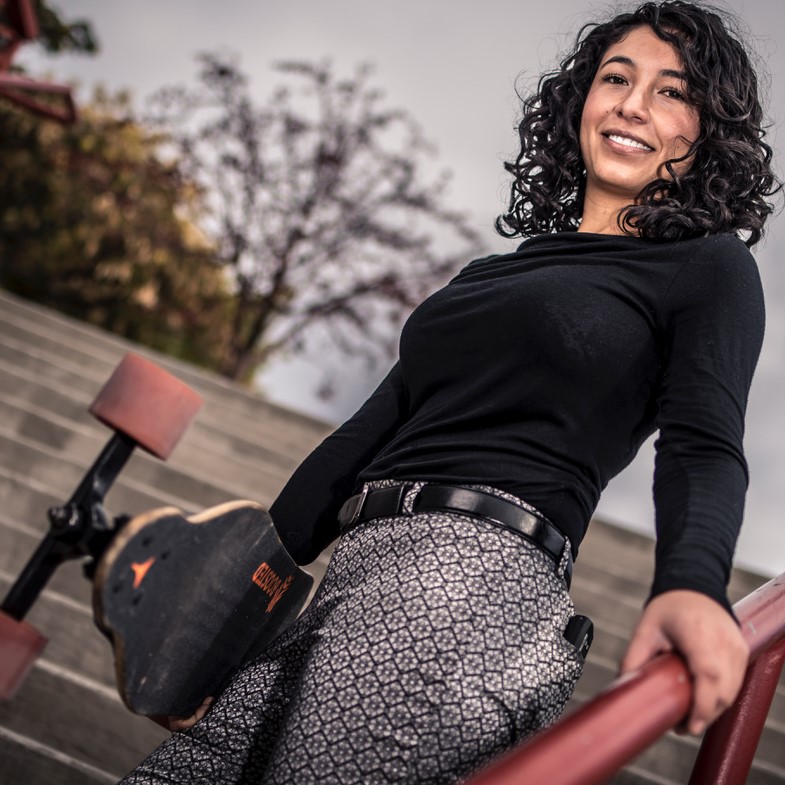 Bárbara Gómez-Aguiñaga is a doctoral candidate in political science studying public policy, racial and ethnic politics, and political communication. She is a Fellow at the Center for Regional Studies at UNM. Her current research projects examine the political behavior of ethno-racial minorities, with an emphasis on Latinos and immigrants, and the intersection of the public policy making process and the politics of minority groups. In addition to academic research, Gomez-Aguinaga has conducted applied policy work on immigration, health and the criminal justice system in multiple organizations such as the American Civil Liberties Union (ACLU) of New Mexico, the Migration Policy Institute in Washington, DC, and the Immigrant Legal Resource Center in San Francisco, CA. Her research has been cited in congressional hearings and testimonies addressing the incorporation of immigrants and undocumented youth to the United States, and has led to policy changes in the state legislature of New Mexico.
Bárbara Gómez-Aguiñaga is a doctoral candidate in political science studying public policy, racial and ethnic politics, and political communication. She is a Fellow at the Center for Regional Studies at UNM. Her current research projects examine the political behavior of ethno-racial minorities, with an emphasis on Latinos and immigrants, and the intersection of the public policy making process and the politics of minority groups. In addition to academic research, Gomez-Aguinaga has conducted applied policy work on immigration, health and the criminal justice system in multiple organizations such as the American Civil Liberties Union (ACLU) of New Mexico, the Migration Policy Institute in Washington, DC, and the Immigrant Legal Resource Center in San Francisco, CA. Her research has been cited in congressional hearings and testimonies addressing the incorporation of immigrants and undocumented youth to the United States, and has led to policy changes in the state legislature of New Mexico.
Melissa C Henry
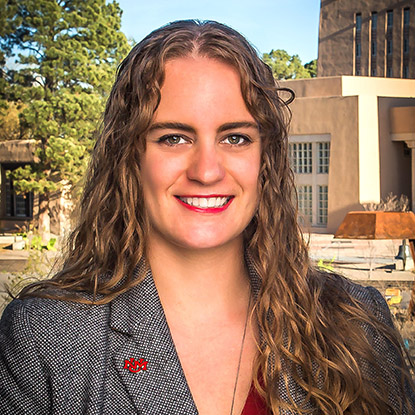 Melissa C Henry is a Counselor Education Doctoral Candidate in the department of Individual, Family, and Community Education located in UNM’s College of Education. She received her BA in Psychology and BS in Marriage, Family, and Child Counseling at Fresno State, in California. Melissa moved to Albuquerque, New Mexico in August 2016 to begin her Ph.D. She is a Licensed Mental Health Counselor and practices individual and couple’s psychotherapy. She teaches as a Graduate Teaching Assistant (TA) in UNM’s Family Studies and Counseling program both undergraduate and graduate courses. Melissa also holds a Research Assistantship (RA) at the Center on Alcoholism, Substance Abuse, and Addictions (CASAA) conducting neuroimaging and psychometrics on Veterans who experience PTSD. She is currently working on her dissertation which highlights the lived experiences of Hispanic women in New Mexico that practice psychotherapy in rural areas.
Melissa C Henry is a Counselor Education Doctoral Candidate in the department of Individual, Family, and Community Education located in UNM’s College of Education. She received her BA in Psychology and BS in Marriage, Family, and Child Counseling at Fresno State, in California. Melissa moved to Albuquerque, New Mexico in August 2016 to begin her Ph.D. She is a Licensed Mental Health Counselor and practices individual and couple’s psychotherapy. She teaches as a Graduate Teaching Assistant (TA) in UNM’s Family Studies and Counseling program both undergraduate and graduate courses. Melissa also holds a Research Assistantship (RA) at the Center on Alcoholism, Substance Abuse, and Addictions (CASAA) conducting neuroimaging and psychometrics on Veterans who experience PTSD. She is currently working on her dissertation which highlights the lived experiences of Hispanic women in New Mexico that practice psychotherapy in rural areas.
Maxine Marks
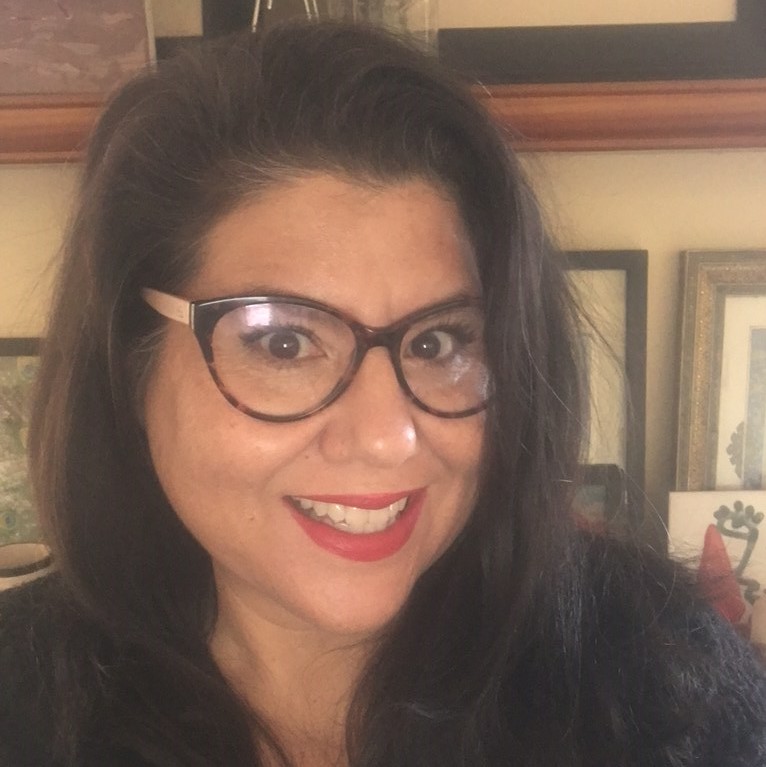 Maxine Marks is a Dissertation Fellow at the Center for Regional Studies and she was previously the New Mexican Art, Decorative Art & Historic Furnishings Documentation Fellow at the Center for Southwest Research. She is a Ph.D. student in Art History at the University of New Mexico, Albuquerque, where her research focus is art of the United States, particularly Regionalism and Modernism, as well as WPA-era art, in which she investigates productions of American identities in visual culture. She has presented her research at academic conferences both nationally and internationally, most recently at the American Studies Association Annual Conference and the Mountain Plains/New Mexico Library Association Joint Conference. Marks was chief editor of two annual volumes of the University of New Mexico’s Art & Art History departmental journal, Hemisphere: Visual Cultures of the Americas, of which all volumes are available in the UNM Digital Repository and in hard copy. Some of her honors include the Henry Luce Foundation Dissertation Research Fellowship in American Art and the David Craven Endowed Memorial scholarship. Her community service has included the UNM Graduate Art Association, the UNM Equity and Outreach Committee, Project for New Mexico Graduates of Color, and the Albuquerque Arts Board.
Maxine Marks is a Dissertation Fellow at the Center for Regional Studies and she was previously the New Mexican Art, Decorative Art & Historic Furnishings Documentation Fellow at the Center for Southwest Research. She is a Ph.D. student in Art History at the University of New Mexico, Albuquerque, where her research focus is art of the United States, particularly Regionalism and Modernism, as well as WPA-era art, in which she investigates productions of American identities in visual culture. She has presented her research at academic conferences both nationally and internationally, most recently at the American Studies Association Annual Conference and the Mountain Plains/New Mexico Library Association Joint Conference. Marks was chief editor of two annual volumes of the University of New Mexico’s Art & Art History departmental journal, Hemisphere: Visual Cultures of the Americas, of which all volumes are available in the UNM Digital Repository and in hard copy. Some of her honors include the Henry Luce Foundation Dissertation Research Fellowship in American Art and the David Craven Endowed Memorial scholarship. Her community service has included the UNM Graduate Art Association, the UNM Equity and Outreach Committee, Project for New Mexico Graduates of Color, and the Albuquerque Arts Board.
Joseph Moreno
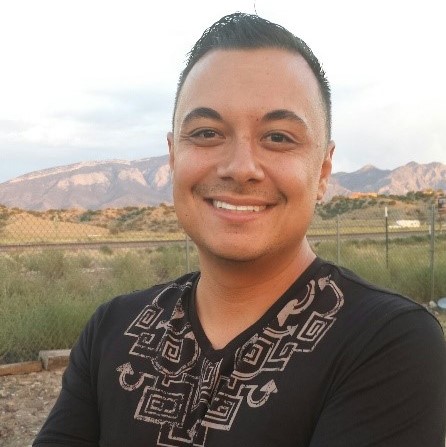 Joseph Moreno is from Bernalillo, NM, and is a 2001 graduate of Bernalillo High School. He received his Bachelor’s degree from Colorado College in 2005 in Liberal Arts & Sciences, Anthropology, Southwest Studies, and Spanish, and received his Master’s degree from UNM in 2008 in Language, Literacy, and Sociocultural Studies. Joseph is currently a PhD candidate in Language, Literacy, and Sociocultural Studies, focusing on the creation of a critical curriculum unit that examines how race, class, power, and identity impact Nuevomexicano language use, and an understanding of history and culture. The unit emphasizes the Bernalillo Matachines Dance, and Las Fiestas de San Lorenzo. Joseph currently lives in Bernalillo, serving in various capacities for the Town of Bernalillo, including the Planning & Zoning Commission, and the newly-created community history museum. He is also a long-time participant of Los Matachines dance, having danced for 20 years.
Joseph Moreno is from Bernalillo, NM, and is a 2001 graduate of Bernalillo High School. He received his Bachelor’s degree from Colorado College in 2005 in Liberal Arts & Sciences, Anthropology, Southwest Studies, and Spanish, and received his Master’s degree from UNM in 2008 in Language, Literacy, and Sociocultural Studies. Joseph is currently a PhD candidate in Language, Literacy, and Sociocultural Studies, focusing on the creation of a critical curriculum unit that examines how race, class, power, and identity impact Nuevomexicano language use, and an understanding of history and culture. The unit emphasizes the Bernalillo Matachines Dance, and Las Fiestas de San Lorenzo. Joseph currently lives in Bernalillo, serving in various capacities for the Town of Bernalillo, including the Planning & Zoning Commission, and the newly-created community history museum. He is also a long-time participant of Los Matachines dance, having danced for 20 years.
Zakery R. Muñoz
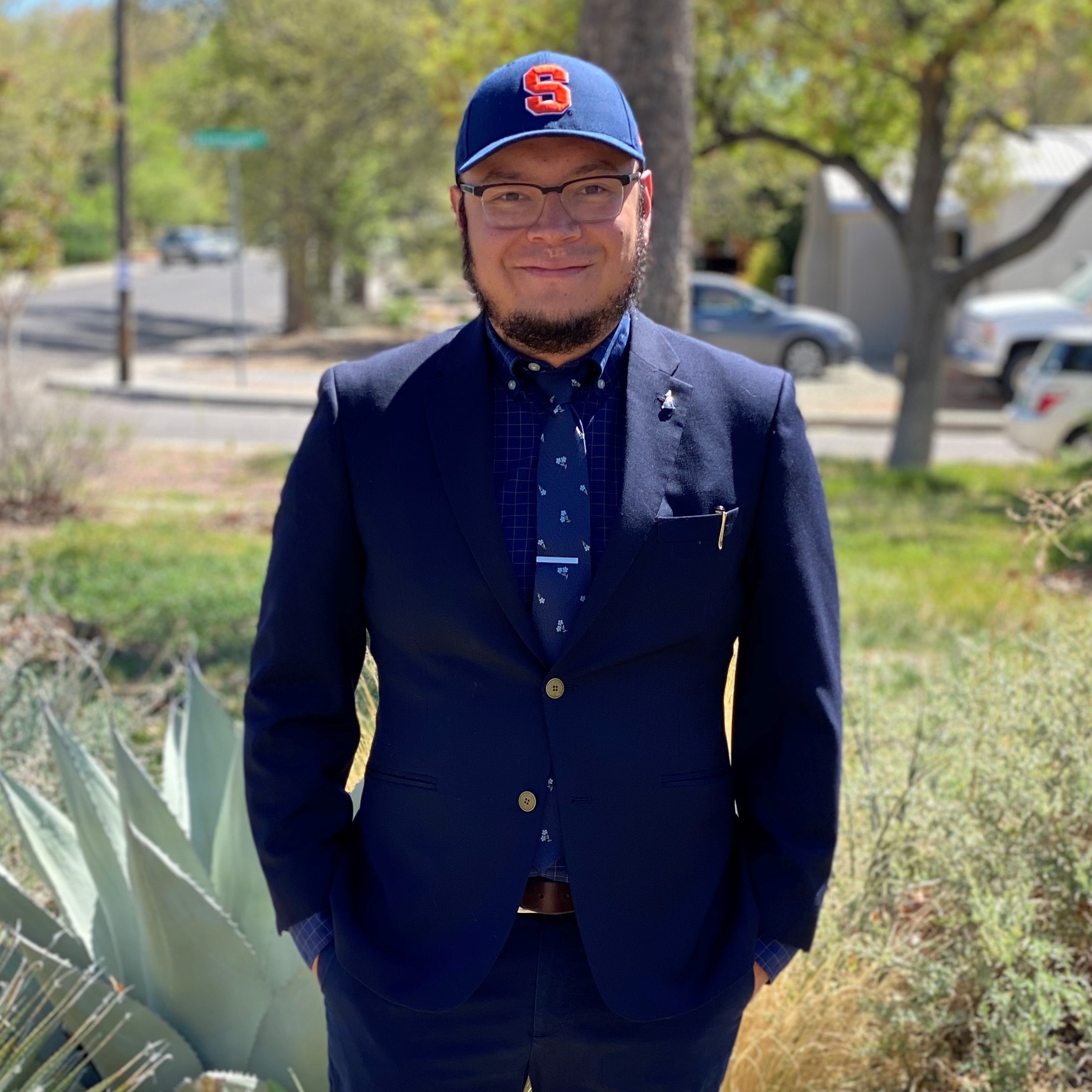 Zakery R. Muñoz was born and raised in Albuquerque, New Mexico. He is a rhetorical historian, and his research interests surround the rhetoric of citizenship and civil rights during the constitutional era of New Mexico. His recovery work on Octaviano Larrazolo, 4th governor of New Mexico, has earned him a fellowship with the Center for Regional Studies at the University of New Mexico, as well as other scholarships including the Vicente Ximenes Scholarship in Public Rhetoric & Civic Liberty. Having just finished his MA in Rhetoric & Writing at UNM, he is eager to begin his Ph.D. at Syracuse University as a University Graduate Fellow. His other areas of interest include technical writing pedagogy, ancient rhetorical theory, and narrative design. His fiction can be found in the Leonardo literary magazine and Stories Through the Ages.
Zakery R. Muñoz was born and raised in Albuquerque, New Mexico. He is a rhetorical historian, and his research interests surround the rhetoric of citizenship and civil rights during the constitutional era of New Mexico. His recovery work on Octaviano Larrazolo, 4th governor of New Mexico, has earned him a fellowship with the Center for Regional Studies at the University of New Mexico, as well as other scholarships including the Vicente Ximenes Scholarship in Public Rhetoric & Civic Liberty. Having just finished his MA in Rhetoric & Writing at UNM, he is eager to begin his Ph.D. at Syracuse University as a University Graduate Fellow. His other areas of interest include technical writing pedagogy, ancient rhetorical theory, and narrative design. His fiction can be found in the Leonardo literary magazine and Stories Through the Ages.
Cassie Lynn Smith
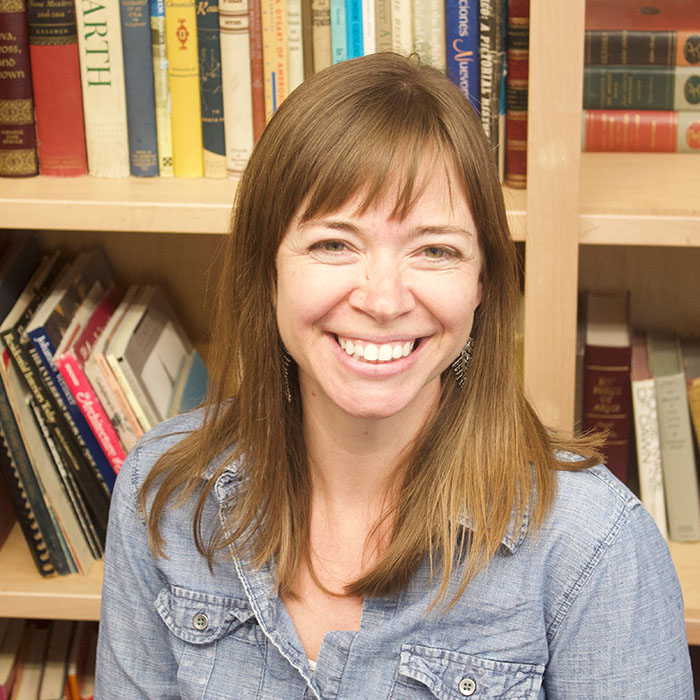 Cassie Lynn Smith is a PhD Candidate in the Department of Anthropology at the University of New Mexico (UNM). She investigates Mexican American community-based art education in Austin, Texas. Her areas of interest include digital, performing, and visual arts from the US-Mexico borderlands, critical race theory in education, and community-based archives. Ms. Smith is a Teaching Assistant for UNM’s Department of Chicana and Chicano Studies and a Teaching Artist with the Emma S. Barrientos Mexican American Cultural Center in Austin. Ms. Smith obtained a Master of Arts degree in both Latin American Studies and Art Education from The University of Texas as well as certificates in Nonprofit Studies and Mexican American Studies.
Cassie Lynn Smith is a PhD Candidate in the Department of Anthropology at the University of New Mexico (UNM). She investigates Mexican American community-based art education in Austin, Texas. Her areas of interest include digital, performing, and visual arts from the US-Mexico borderlands, critical race theory in education, and community-based archives. Ms. Smith is a Teaching Assistant for UNM’s Department of Chicana and Chicano Studies and a Teaching Artist with the Emma S. Barrientos Mexican American Cultural Center in Austin. Ms. Smith obtained a Master of Arts degree in both Latin American Studies and Art Education from The University of Texas as well as certificates in Nonprofit Studies and Mexican American Studies.
Carlyn Stewart
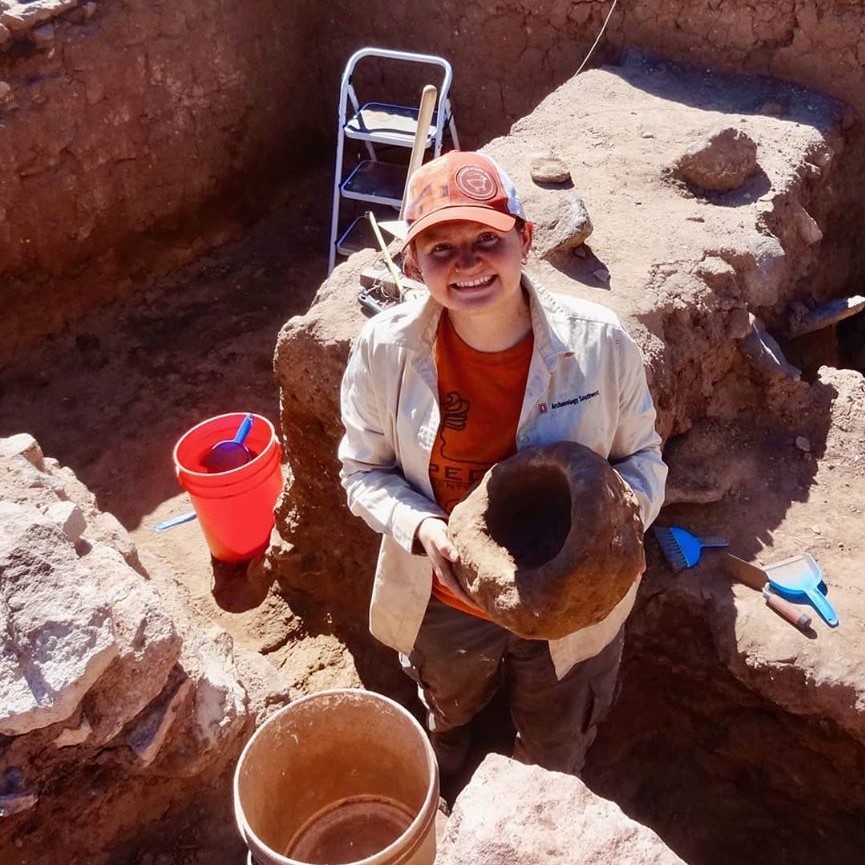 Carlyn Stewart is a Master's Student in the Anthropology department, seeking her degree in Public Archaeology. Her Master's project involved a public archaeological excavation which took place at Coronado Historic Site in the fall of 2019. In addition to graduate coursework, Carly is the Instructional Coordinator at Los Luceros Historic Site where she aims to educate, engage, and inspire the public about the history and culture of New Mexico. She has a BA in Anthropology, focus in Archaeology from the University of Arizona in Tucson, Arizona where she was born. She has two dogs, a cat and a ferret.
Carlyn Stewart is a Master's Student in the Anthropology department, seeking her degree in Public Archaeology. Her Master's project involved a public archaeological excavation which took place at Coronado Historic Site in the fall of 2019. In addition to graduate coursework, Carly is the Instructional Coordinator at Los Luceros Historic Site where she aims to educate, engage, and inspire the public about the history and culture of New Mexico. She has a BA in Anthropology, focus in Archaeology from the University of Arizona in Tucson, Arizona where she was born. She has two dogs, a cat and a ferret.
Nicole Swentzell
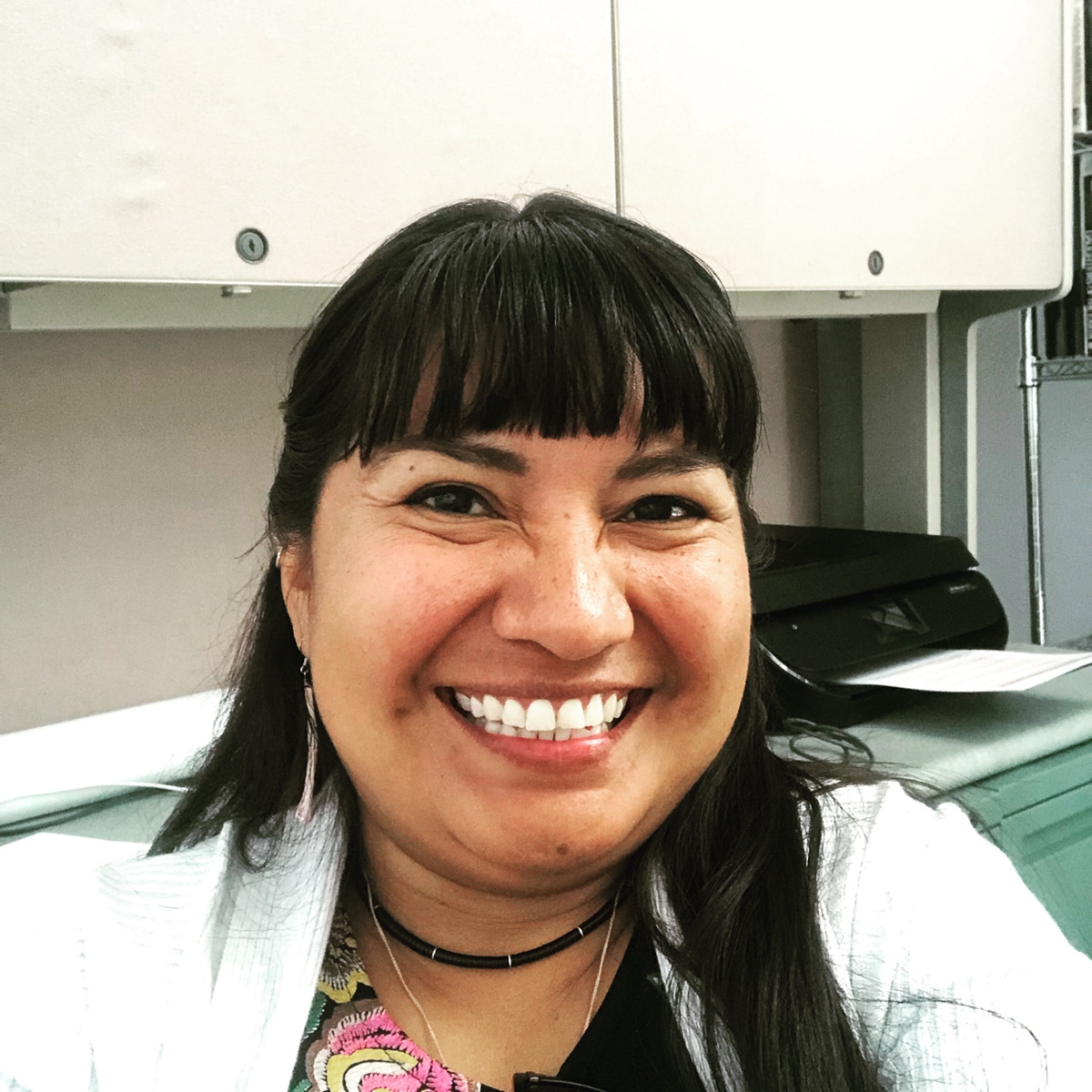
Katharine (Katie) Williams
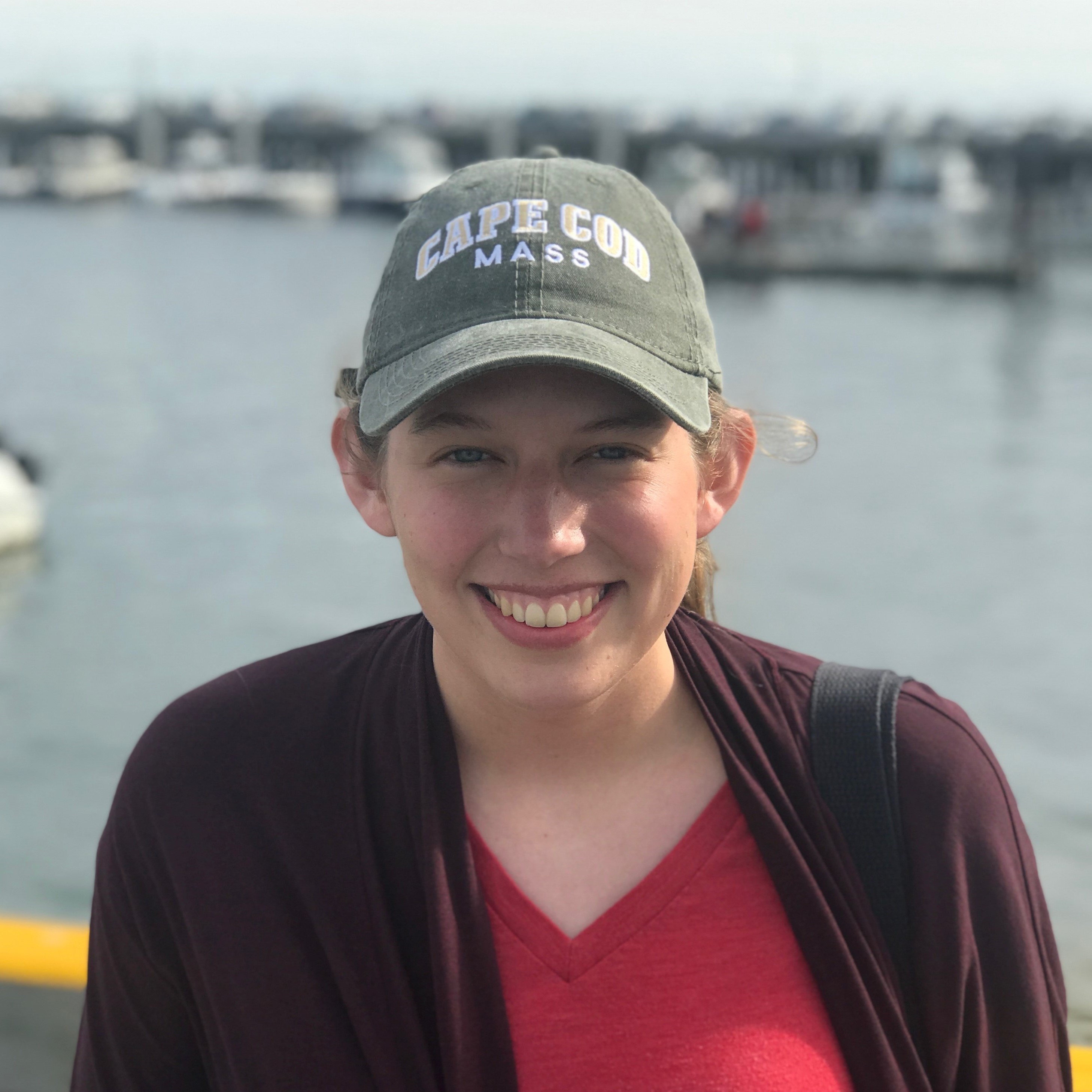 Katie Williams is a graduate student in the Department of Anthropology, working towards her doctorate in archaeology. Her dissertation research is on the organization of labor and architectural production at cliff dwellings in the American Southwest, with a focus on earthen plasters and plastering practices. She currently works as an assistant on the conservation of earthen plasters at sites throughout the Southwest and hopes to continue working in the field of architectural conservation in the future. Katie was born in Albuquerque, NM and is a member of the Absentee Shawnee Tribe of Oklahoma. She has a B.S. in Chemical Engineering from the Colorado School of Mines and an M.A. in Archaeology from UNM.
Katie Williams is a graduate student in the Department of Anthropology, working towards her doctorate in archaeology. Her dissertation research is on the organization of labor and architectural production at cliff dwellings in the American Southwest, with a focus on earthen plasters and plastering practices. She currently works as an assistant on the conservation of earthen plasters at sites throughout the Southwest and hopes to continue working in the field of architectural conservation in the future. Katie was born in Albuquerque, NM and is a member of the Absentee Shawnee Tribe of Oklahoma. She has a B.S. in Chemical Engineering from the Colorado School of Mines and an M.A. in Archaeology from UNM.
